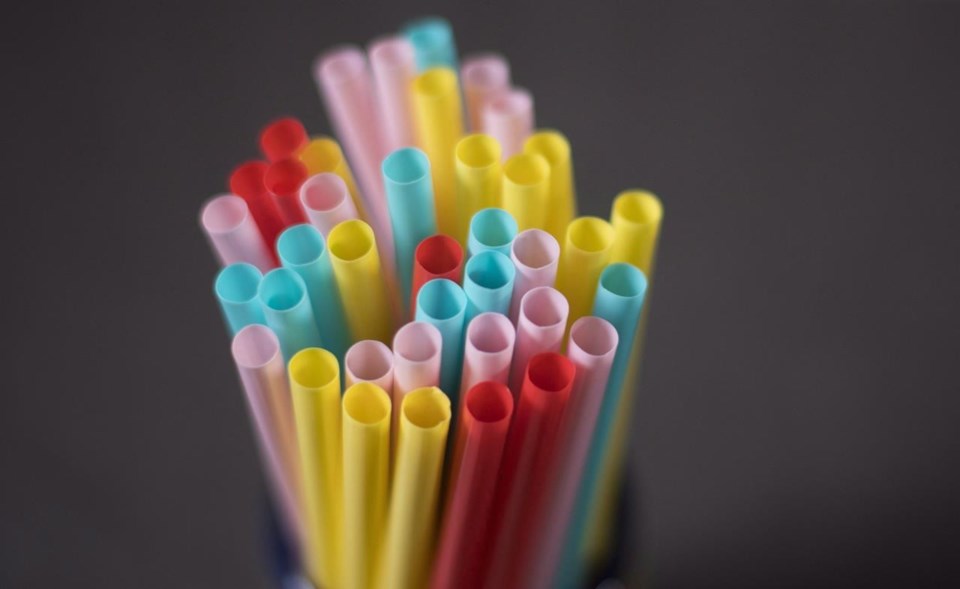OTTAWA — The federal government's ban on plastic straws and grocery bags is in question after the Federal Court ruled on Thursday that Ottawa had overstepped its bounds in designating all "plastic manufactured items" as toxic.
But one environmental law expert believes that in the long term, the ban of those specific items will stand up to legal scrutiny.
The Liberal cabinet designated plastic manufactured items as toxic in 2021, in order to allow the environment minister to regulate their use in Canada.
In December 2022, the first of those regulations took effect, barring the manufacture and import of six types of single-use plastics, including straws, grocery bags, cutlery, takeout containers, stir sticks and six-pack beverage rings.
The designation was applied to all plastic manufactured items.
In her ruling, Justice Angela Furlanetto noted that evidence shows "thousands" of different items are in that category, and they all have different uses and chemical makeups.
And she said that surely includes some items for which there is no reasonable expectation of environmental harm.
"The broad and all-encompassing nature of the category of (plastic manufactured items) poses a threat to the balance of federalism as it does not restrict regulation to only those (items) that truly have the potential to cause harm to the environment," Furlanetto wrote.
The Canadian Environmental Protection Act defines toxic substances as those that are or may be dangerous to human life or health, that "have or may have" a harmful impact on the environment or biological diversity or that constitute "a danger to the environment on which life depends."
Furlanetto said the government's own report identified several single-use plastic items, including garbage bags, contact lenses and disposable personal care items, that were either not prevalent or were not known to cause environmental harm.
"However, despite recognition that these items are not environmentally problematic, they are included in the category of (plastic manufactured items) that are toxic," Furlanetto said.
Because the cabinet order that has now been struck down is required to enact the regulations banning some plastic items, those regulations could also now be argued to be improper.
Behind the lawsuit challenging the toxic designation was the Responsible Plastic Use Coalition, which represents companies from the plastics industry that do business in Canada, along with three chemical companies that make plastics.
In a statement on Thursday, the coalition said it is reviewing the decision.
"We are currently analyzing court documents and will be considering our next steps upon completing that review," the coalition said in an unsigned email.
Stewart Elgie, a law professor and director of the Environment Institute at the University of Ottawa, said the government has options that should allow its ban to stay in place.
For one thing, it can appeal the court decision, and the government says it likely will.
Elgie said the federal government would also likely succeed in asking the court to suspend the judge's order quashing the toxic designation until that appeal is heard.
Also, Elgie pointed out, Furlanetto's decision does not suggest that the items the government wants to ban would not meet the test for being designated as toxic if they were given that designation separately.
"I'd say it looks like the federal government can regulate the things they're now regulating," Elgie said.
"They just have to do it in a more targeted way."
The decision does nothing to undermine the government's ability to regulate toxic substances in general, he added, including greenhouse gases. Elgie noted that in the decision, the judge uses that as an example of a toxic substance under the law.
Environment Minister Steven Guilbeault said in a statement that the government remains steadfast in its commitment to keeping plastics out of the environment, but he didn't say exactly what it will do.
"The government of Canada is carefully reviewing the Federal Court judgement and are strongly considering an appeal," he said.
The court decision was "disappointing," said Kim Elmslie, campaign director at Oceana Canada, a conservation advocacy group that intervened in the case in support of the government's position.
Elmslie noted that multiple countries are moving to bar the use of many single-use plastics.
"This is the way that the world is moving. (Now) that we've recognized that this is a huge crisis in our oceans, on land we need to deal with it. We need to address it," Elmslie said.
"It's just very frustrating that at this time, that this is an obstacle right now. It's a setback."
This report by The Canadian Press was first published Nov. 16, 2023.
Mia Rabson, The Canadian Press



